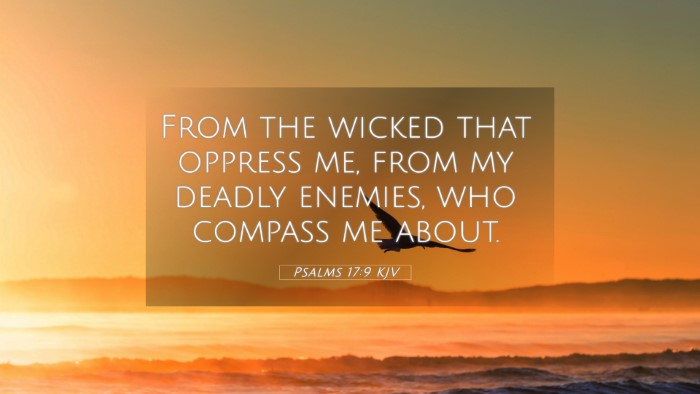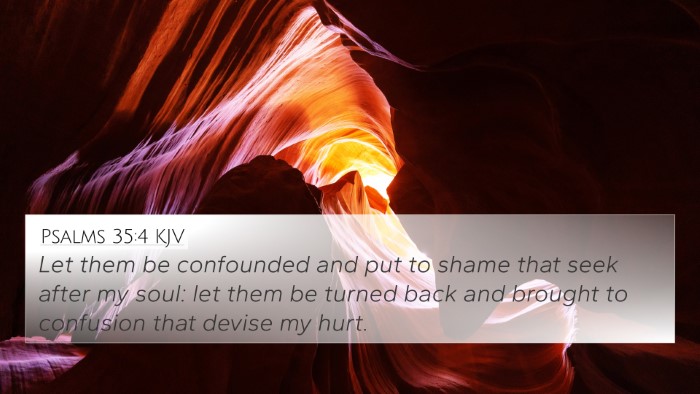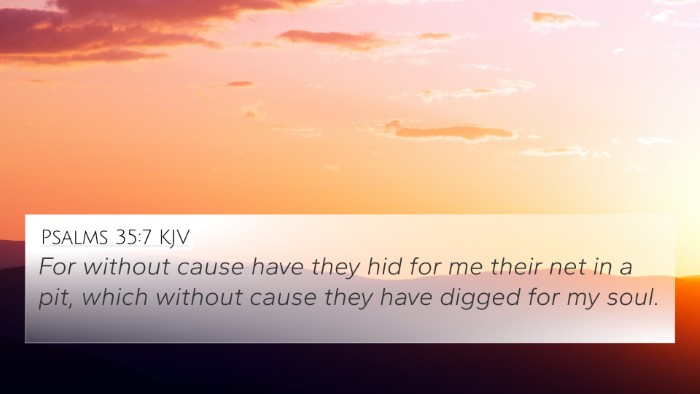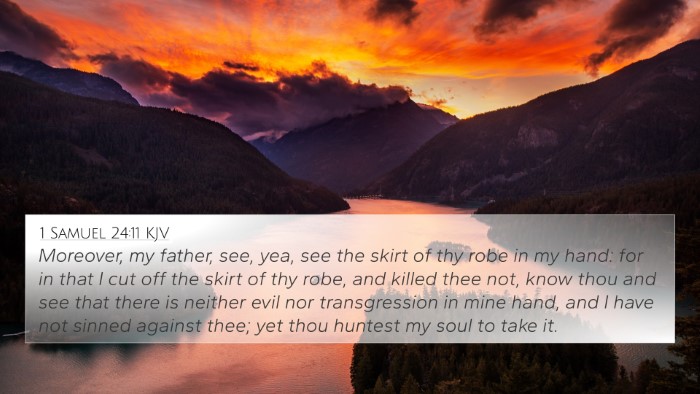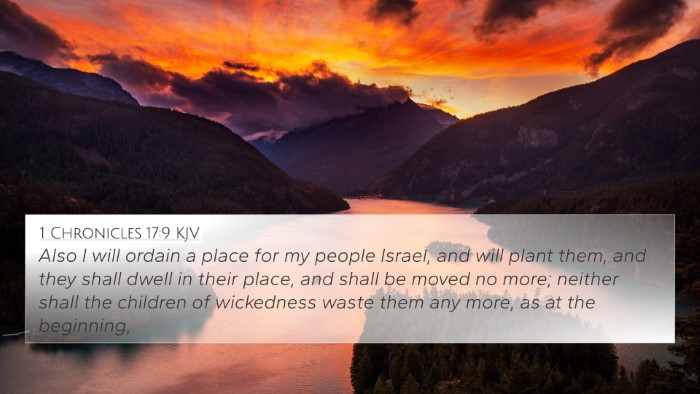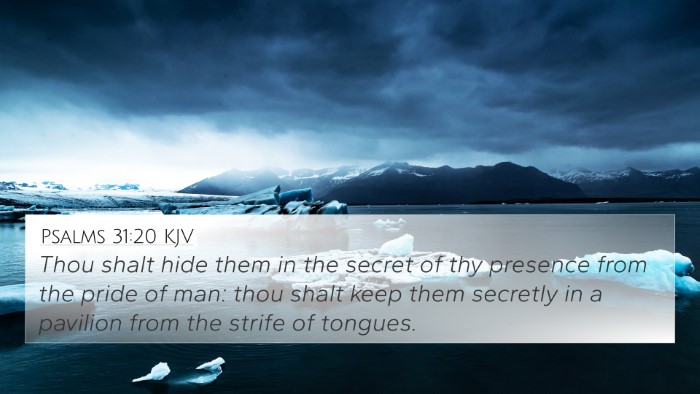Understanding Psalms 17:9
Psalms 17:9 states, "From the wicked that oppress me, from my deadly enemies, who compass me about." This poignant verse reflects a deep plea for protection and deliverance from adversaries that threaten one’s life and peace. Below is a comprehensive explanation combining insights from notable public domain commentaries.
Verse Analysis
This verse speaks to the psalmist's dire situation, where he feels surrounded by those who wish to do him harm. It recalls themes of vulnerability and divine safeguarding.
Insights from Commentaries
-
Matthew Henry:
Henry suggests that the context of this psalm reflects a righteous individual's plea against those who are wicked and unjust. The psalmist recognizes God as a protector who sees injustice.
-
Albert Barnes:
Barnes interprets this verse as a recognition of the active threats from enemies. The trouble the psalmist faces is positioned not merely as a physical challenge but as a spiritual one, indicating a reliance on God for rescue from forces beyond human control.
-
Adam Clarke:
Clarke emphasizes the emotional turmoil of facing such threats, noting that the psalmist's call for God's intervention is a declaration of faith. He conveys that the psalmist seeks God not only for safety but also for deliverance from despair brought by surrounding enemies.
Cross-References Relevant to Psalms 17:9
This verse connects to several other biblical texts that highlight themes of divine protection and justice against oppressors:
- Psalms 22:12-13: "Many bulls have compassed me: strong bulls of Bashan have beset me round." - Reflecting the isolation and attack from enemies.
- Psalms 27:2: "When the wicked, even mine enemies and my foes, came upon me to eat up my flesh, they stumbled and fell." - A declaration of faith in God's deliverance.
- Psalms 31:15: "My times are in thy hand: deliver me from the hand of mine enemies, and from them that persecute me." - A deep trust in God's timing and protection.
- Psalms 59:2: "Deliver me from the workers of iniquity, and save me from bloody men." - Explicitly articulating the desire for deliverance from evil men.
- Psalms 71:4: "Deliver me, O my God, out of the hand of the wicked, out of the hand of the unrighteous and cruel man." - This resonates strongly with the plea for safety from the wicked.
- Matthew 5:44: "But I say unto you, Love your enemies, bless them that curse you, do good to them that hate you, and pray for them which despitefully use you, and persecute you." - Reflects a new perspective on enemies, urging believers to respond with love while acknowledging their presence.
- Romans 12:19: "Dearly beloved, avenge not yourselves, but rather give place unto wrath: for it is written, Vengeance is mine; I will repay, saith the Lord." - Affirms that ultimate justice belongs to God, which can be a comfort when faced with adversaries.
Thematic Connections
These cross-references establish a web of themes surrounding divine protection, the struggle against wickedness, and the believer’s response to enemies. The psalmist's cry in Psalms 17:9 resonates with broader biblical wisdom, emphasizing God's ability to shield and deliver His people in times of distress.
Connecting Psalms 17:9 with Other Scriptures
Understanding the significance of Psalms 17:9 becomes clearer when we explore its connections to various passages. For example:
- Psalms 34:19: "Many are the afflictions of the righteous: but the Lord delivereth him out of them all." - Illustrating a consistent biblical theme of suffering followed by deliverance.
- Psalms 91:3-4: "Surely he shall deliver thee from the snare of the fowler, and from the noisome pestilence." - Assurance of God’s protective nature against unseen dangers.
- 2 Timothy 4:18: "And the Lord shall deliver me from every evil work, and will preserve me unto his heavenly kingdom: to whom be glory for ever and ever. Amen." - This New Testament reflection on deliverance highlights the unchanging nature of God's protection through faith.
Conclusion
Psalms 17:9 exemplifies the profound need for divine aid in the face of oppression. The combined insights from reputable commentaries and related biblical texts underscore a recurring biblical conviction: that God watches over His own, offering deliverance and refuge against the intent of enemies. By engaging in cross-referencing Biblical texts and understanding thematic Bible verse connections, readers can deepen their comprehension of Scriptural teachings and draw connections that enhance their spiritual journey.

